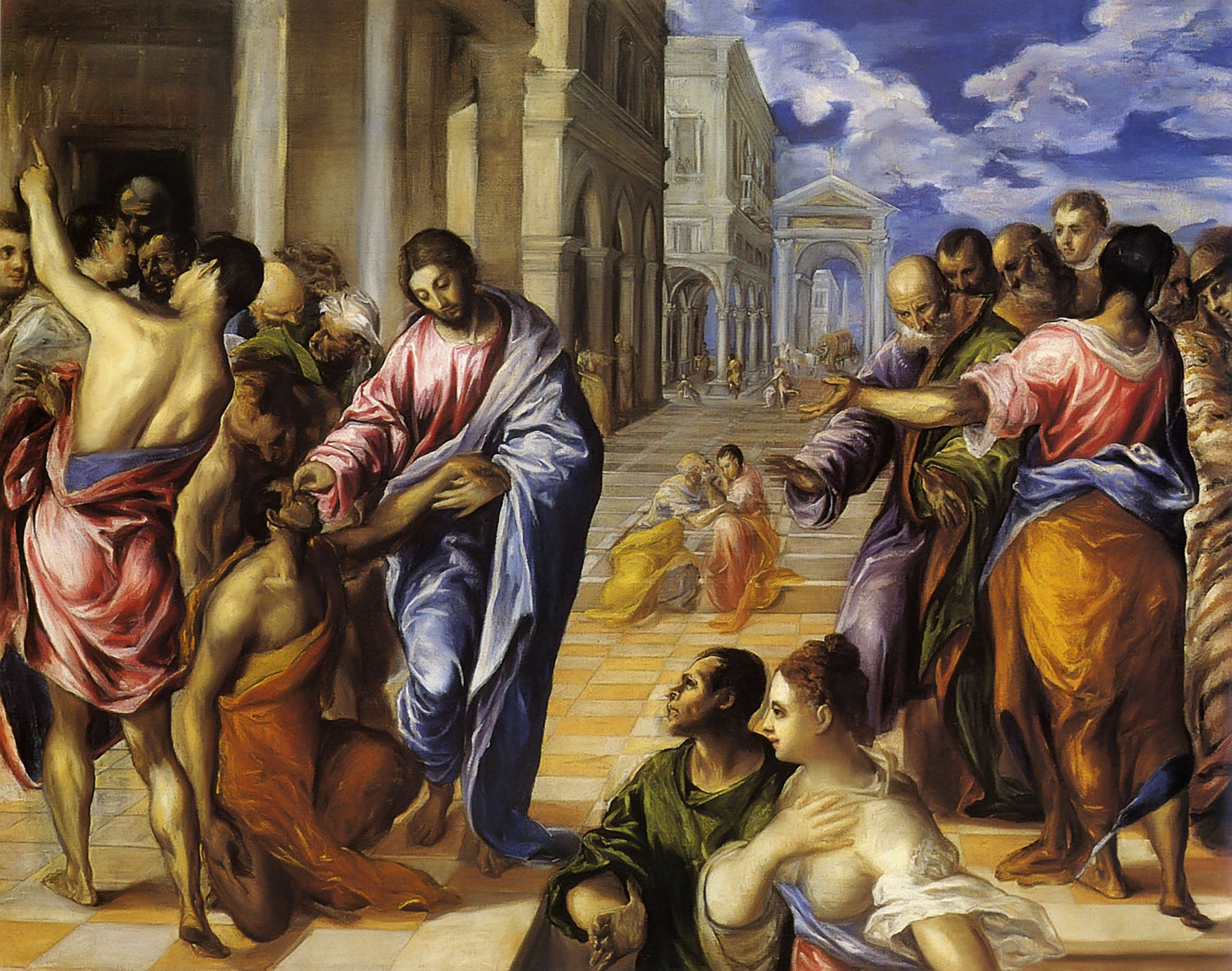
This week's blog post is based on a sermon given by student Riva Tabelisma at Spirit of Hope United Methodist Church in Golden Valley, MN.
In Mark 6:1-13 are two different but related stories about Jesus' ministry. In the first story, Jesus preached to his hometown. But instead of a warm welcome, he received rejection. Initially, the townspeople were impressed by his preaching, but when they realized who he was, "they took offense." John Spence said, "When someone tells you, 'You’ve changed,' it might simply be because you’ve stopped living life their way." In the Gospel, the townspeople’s rejection was based on the change that happened to Jesus. They did not expect that as a carpenter’s son, Jesus could be the same as the person teaching in front of them. Their initial positive impression of Jesus suddenly changed. How could they have been so impressed by the lessons of a carpenter's son! The people in the synagogue were offended that a carpenter’s son had such wisdom and was speaking in the temple.
I come from a family of minsters and church workers. I grew up in the church, vertically and horizontally. This family is very conservative, including the theology that I was raised in, and in my family, I am the one who is less conservative. After being in seminary for almost two years now, I have become inclined to a more liberal, progressive perspective on the interaction of the church and society. As I continue my journey into becoming a minister, I have become what my family would call a "Prodigal Christian."
Mark 6:1-6 makes me think of how it would feel going back to my hometown to preach. I can imagine my uncles and aunts’ eyebrows raising. My cousins would probably tell me, "What happened to you?" And just like in the passage, people would say, "Isn’t she the daughter of Pastor Nathan? Why did she become the way she is?"
Acceptance is very important in my culture. And if I hear people from back home react this way to me, it would affect me greatly. The hardest rejection that a person can experience is the rejection from their own family, friends and loved ones. Since I don’t have any plans to go back until I finish my degree and establish my ministry, I have time to prepare myself for what possible rejection I may receive when I preach in the Philippines. Just like Jesus, who did not anticipate the reaction of his people, I will not have control over my people’s perception of me.
When I decided to begin my journey in what is called the candidacy process, my father gave two pieces of advice:
- When it’s time for you to be appointed to a church, avoid being appointed to your home church;
- When the people in your church (assignment) become too familiar, almost like family, it’s time for you to talk to your District Superintendent and move to a different church appointment.
These were his nuggets of wisdom, in reference to the first part of the Biblical passage today. Jesus retaliated to rejection by answering back, “Prophets are not without honor, except in their hometown, and among their own kin, and in their own house,” then continued his ministry, laying hands on and healing the sick. Notice that he performed simple miracles, because he knew that whatever he did, he wouldn’t be able to convince his own people.
Then, Jesus moved on to the next village or town. It wasn’t clear where he went, but it is clear he went away from his hometown. Not to run away to an isolated place but some place where he will be accepted. Which brings me to the second story, Mark 6:7-13. Jesus sends the disciples, in pairs, to minister to the people, the rationale being so that each disciple could support the other.
And Jesus had specific instructions: Bring nothing but a staff or a walking stick, no bread, no bag, no money in their belts, wear sandals, and do not wear two tunics. After experiencing cold weather here in Minnesota, I understood the importance of tunics or the lack thereof, especially when the temperature starts to drop. I have a pastor friend who once commented that to work in the church, as a pastor or otherwise, is a to take a vow of poverty. She was probably thinking of Mark 6:8-9. Jesus further instructed the disciples to stay in one house until they are ready to go to another town. And with this instruction, he warned, “If any place will not welcome you and they refuse to hear you, as you leave, shake off the dust that is on your feet as a testimony against them.” This reflected Jesus’ human side. Surely, he was hurt from the rejection of his own people. Hurt from the experience that he had in his hometown, he reminded his disciples that if people reject them, they should not take it against themselves. This instruction is Jesus’ self-care, a coping mechanism he wanted to share with his disciples so that they would not feel the resentment and hurt that he felt. And the support of a buddy would greatly help them.
One way or another, we experience rejection from people that matter to us. And for sure, that hurts. In the events happening in this country, people are in very different places. Families, friends and even people inside this sanctuary and faith community may stand on opposite poles when it comes to social issues. When I look at my Facebook feed, I see people’s opinions about social issues in too much opposition.
Right now, we are facing the controversy of immigration policies and their undesirable implementation. As a foreigner in this country, I will not talk about my stand or how I feel about it, because I am an immigrant myself. Surely, you all have different opinions on this issue. And your personal opinions may or may not be accepted by the people that matter to you. Not just with immigration issues but other issues that our society faces, such as environmental care, hunger, homelessness and systemic injustices. It is great that the church I go to, Spirit of Hope, is involved in feeding the hungry, giving shelter to the homeless, accepting people regardless of their sexuality and other acts of showing love to the neighbor. Unfortunately, even in my church, there is always a person or two who is close to my heart that will reject what I am doing. What do we do in these situations? Do we sulk or cower in disappointment? Do we stop doing what we are doing? Do we stop being who we are? Do we retreat from showing our love to our neighbor?
Jesus did not stop being himself when the people close to him rejected him. He did not stop his ministry. Instead, he moved forward to another town where he would be accepted. He continued to do his work, sending his disciples to the world. He even gave instructions to his disciples: Shake off the dust before you leave. This is the message for all of us. If people reject our acts of love for our neighbors, let us shake off the dust of disappointments on our feet: their rejection of our actions is the testimony against them. Let us not retreat to our little corners, but move forward to places where our actions and identities will be accepted. Like Jesus and his disciples, rejection should drive us to continue ministering to the world and to show God’s love to everyone and everything that God created.




Your Comments :